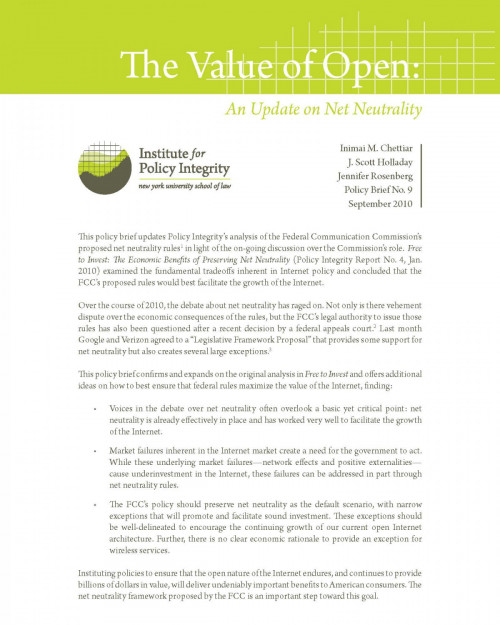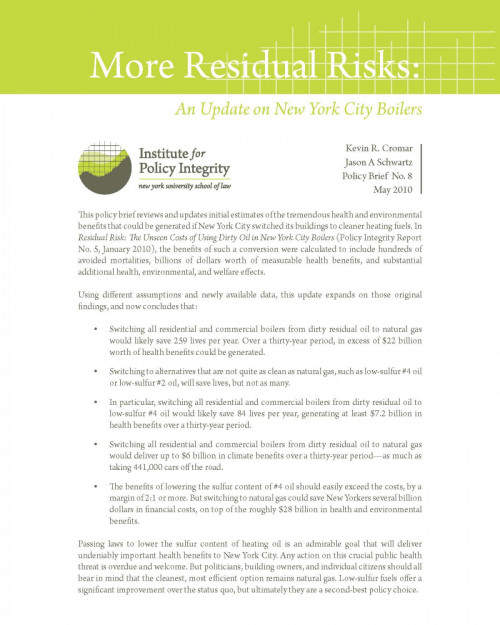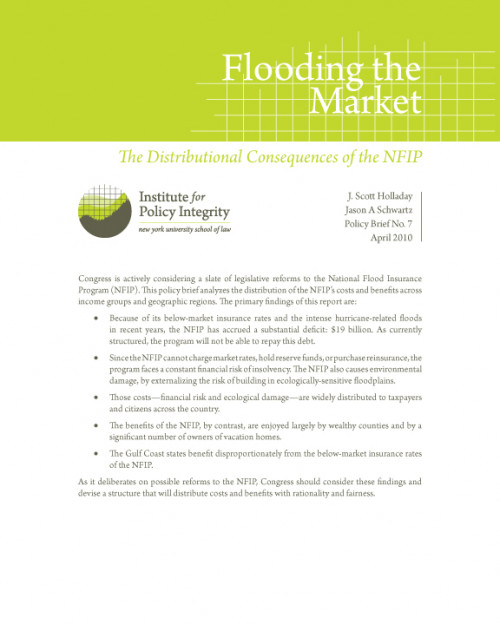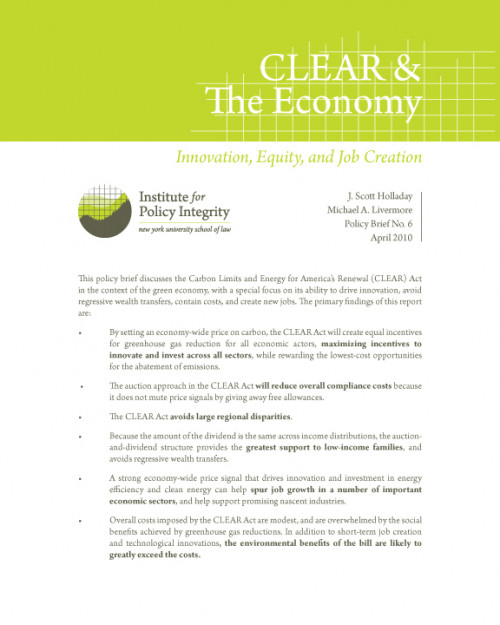The Institute for Policy Integrity produces a variety of publications. Our research reports develop in-depth research on our core issues, while our policy briefs and issue briefs provide focused analysis on more timely or particular topics. Our academic articles and working papers offer original scholarly research and analysis from established experts as well as fresh new voices.
Latest Publications
-
_110_86_90.jpg)
Climate Change and Future Generations
Efforts to reduce greenhouse gases and control climate change implicate a wide range of social, moral, economic, and political issues, none of them simple or clear. But when regulators evaluate the desirability of climate change mitigation through cost-benefit analysis, one factor typically determines whether mitigation is justified: the discount rate or the rate at which future benefits are converted to their present value.
This working paper evaluates the four principal justifications for intergenerational discounting, which often are conflated in the literature. It shows that none of these justifications supports the prevalent approach of discounting benefits to future generations at the rate of return in financial markets and, more generally, that discounting cannot substitute for a moral theory setting forth our obligations to future generations.
-

The Value of Open
An Update on Net Neutrality
An open Internet allows anyone with an idea and a domain name to add content to the web for all to use. It’s a system that most believe works very well, generating billions in economic benefits for the American public every year. This policy brief analyzes the economic uncertainties of weakening our current, open Internet and sees potential trouble ahead if it is not preserved.
-

More Residual Risks
An Update on New York City Boilers
Up to 259 lives could be saved every year if certain large buildings in New York City stopped burning dirty heating oil. Using newly available data, a reworked analysis finds that residual oil has even greater consequences than estimated in an earlier report.
-

Flooding the Market
The Distributional Consequences of the NFIP
The government’s flood insurance program gives discounts to homeowners who build in flood-prone areas, often causing significant environmental damage. In this analysis, the Institute for Policy Integrity finds that this practice can benefit wealthy owners of expensive homes at a cost to the average taxpayer.
-

CLEAR & The Economy
Innovation, Equity, and Job Creation
The CLEAR Act, sponsored in the Senate by Maria Cantwell (D-WA) and Susan Collins (R-ME), would place a price on carbon, auction 100% of the pollution permits, and refund most of the revenue back to consumers. This brief found that pricing carbon would spur investment and innovation in new energy technologies, giving a substantial boost to industries like manufacturing and construction—both hit hard in the recent financial crisis. Relatively well-paying jobs would be generated in these sectors, helping to mop up the slack created by the recession.
